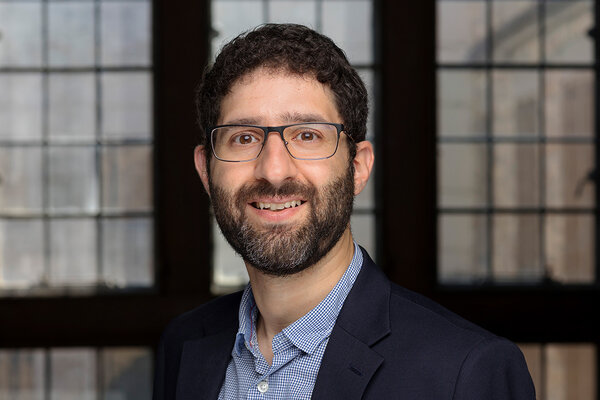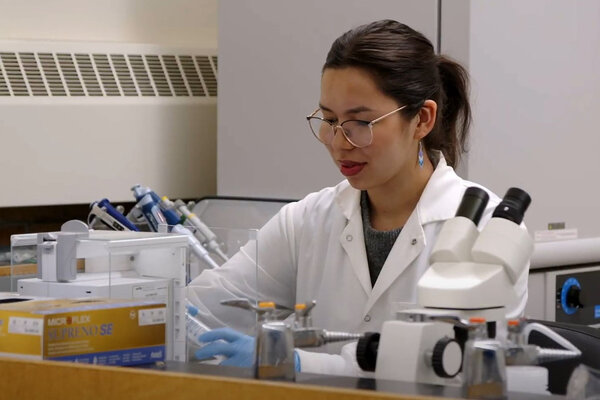
U of S, U.S. company explore blockchain technology to support researchers in sharing papers, data
DLT technology allows for the creation of permanent trusted records of data
By Shannon Boklaschuk
A new collaboration between the University of Saskatchewan (U of S) and a U.S. company has the potential to revolutionize the way people share and access scholarly work and research data.
The U of S is partnering with a company called ARTiFACTS to evaluate the effectiveness of using blockchain-based solutions for improving scholarly research and communication. Blockchain technology is often understood as a secure chain of digital records.
Teams from the U of S Department of Computer Science and the Multi-User Adaptive Distributed Mobile and Ubiquitous Computing (MADMUC) Lab will use the ARTiFACTS platform to conduct many of their upcoming research projects.
Ajay Shrestha, a PhD candidate in the College of Arts and Science at the U of S, supervised by Professor Julita Vassileva, will lead a research project to study the use and value of applying blockchain—more generally called “distributed ledger technology” (DLT)—to manage intellectual property.
DLT technology allows for the creation of permanent trusted records of data and and has received worldwide attention recently for its use in digital currency, such as Bitcoin. U of S researchers want to test how that technology can be used for sharing research findings and data sets among researchers around the world.
“DLT can be groundbreaking since it will allow users to share data among each other without losing control and ownership of it,” said Vassileva.
Vassileva noted that when scholars share their data on database repositories or social sites, they give up ownership of the content and the research results they produced—something she calls “a really painful problem for researchers, and a barrier preventing research data sharing.” However, DLT technology is decentralized, meaning no one site or company owns the work.
Using DLT technology would enable researchers to share their data and research results with others but still maintain ownership and control of it. By setting up what Vassileva calls “smart contracts,” researchers could set out terms and conditions for accessing their data and research results—for example, a payment, formal credit or a citation in another research article.
“We’ve worked on policies and software for permission-based sharing of user data for a long time, but a reliable underlying technology wasn’t available to allow us to implement and evaluate a system for securely sharing research data on a large scale,” said Vassileva.
“With DLT, we now have a trusted, secure and scalable technology that allows us to incorporate mechanisms for user-defined policies for accessing and using research artifacts—publications, data, designs, etcetera.”
Using DLT technology could also allow researchers to see who is accessing their work. It would be possible to build tools that trace how the work is being used in other research, said Vassileva.
“We think this is a double benefit—you can control who you share your research with and for what purpose, and get some credit or reward,” she said.
Vassileva said one hurdle to the massive adoption of such a system is making the contracts transparent and usable, so that researchers can create them by themselves. The U of S team is working on this, capitalizing on their experience in persuasive technologies, information visualization and personalization. They have developed a prototype implementing smart contracts in the Ethereum DLT platform and believe they found a good partner in ARTiFACTS to evaluate the usability of the new technology in a real platform for sharing results of scholarly work.
ARTiFACTS provides a user-friendly platform that was built specifically for sharing academic and scientific research leveraging DLT technology. It allows researchers to create a chain of records in real-time, from the earliest stages of research, for all research artifacts, including citing and attribution transactions.
“ARTiFACTS is pleased to be working with the University of Saskatchewan both to build our network of university partners and gain real-world insights from a team of blockchain savvy researchers,” said Courtney Morris, president and co-founder of ARTiFACTS.
“This research is an essential step for advancing practical solutions to known issues in scholarly communications and is perfectly aligned with our model of engaging with the academic community,” added Dave Kochalko, ARTiFACTS chief academic officer.


